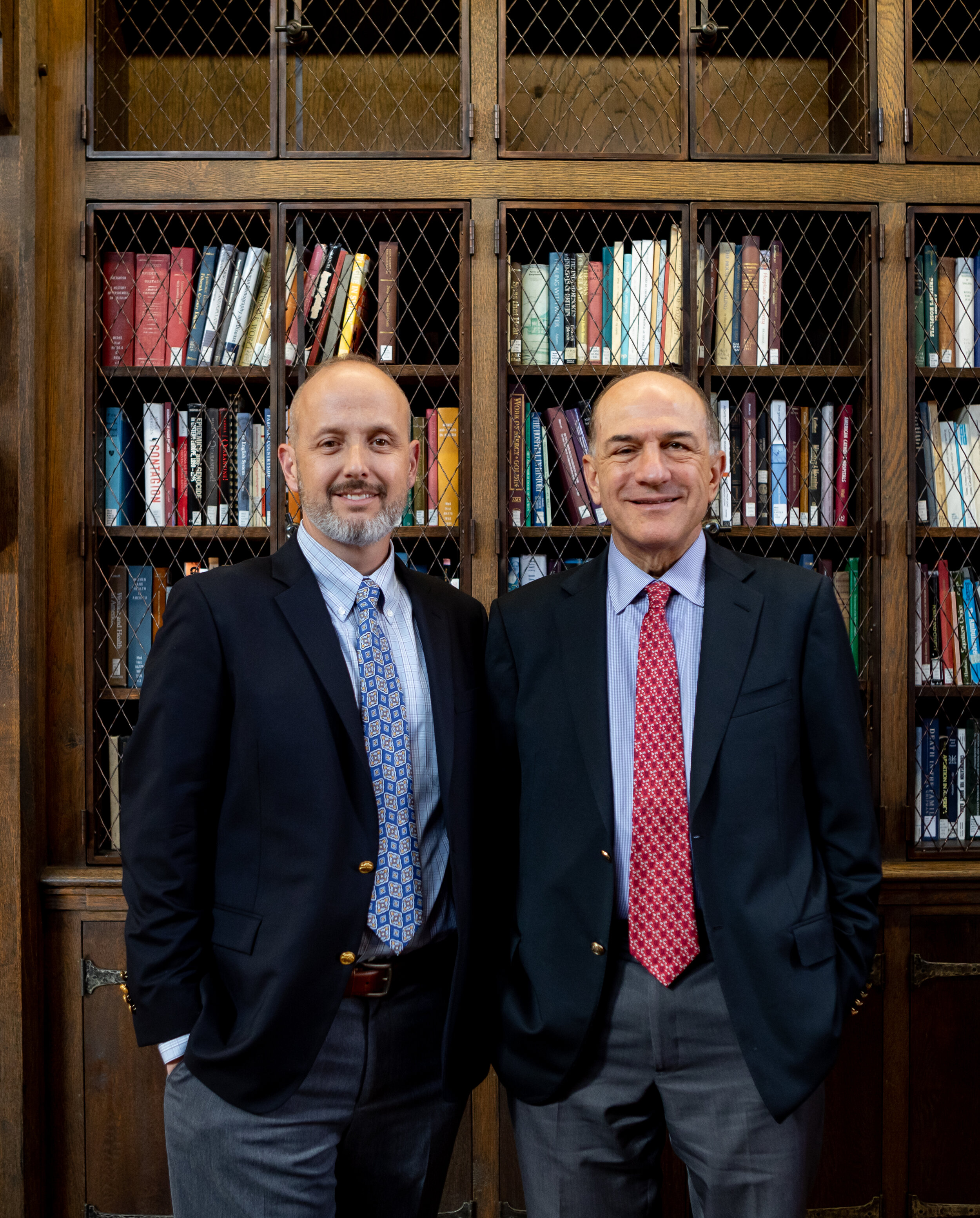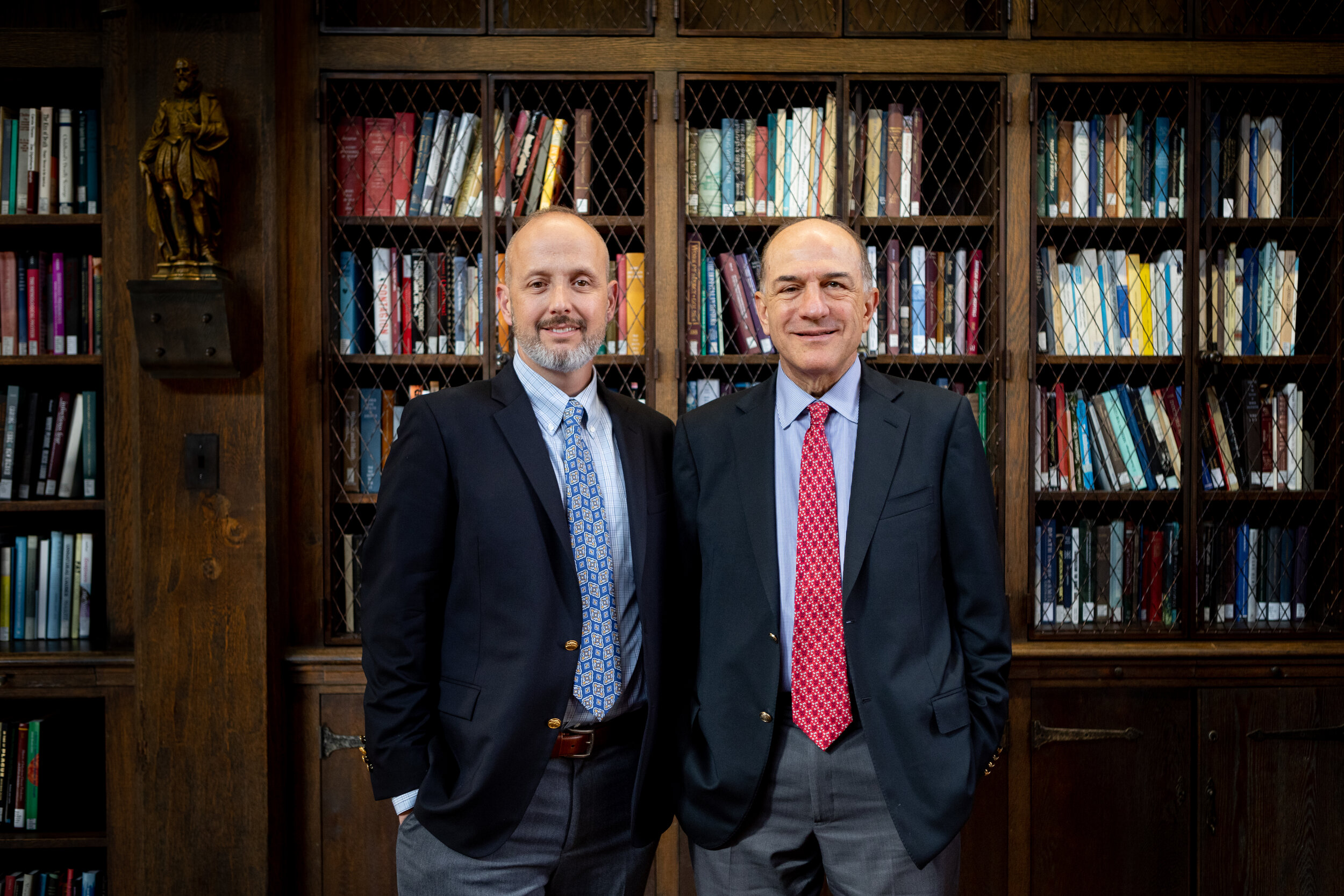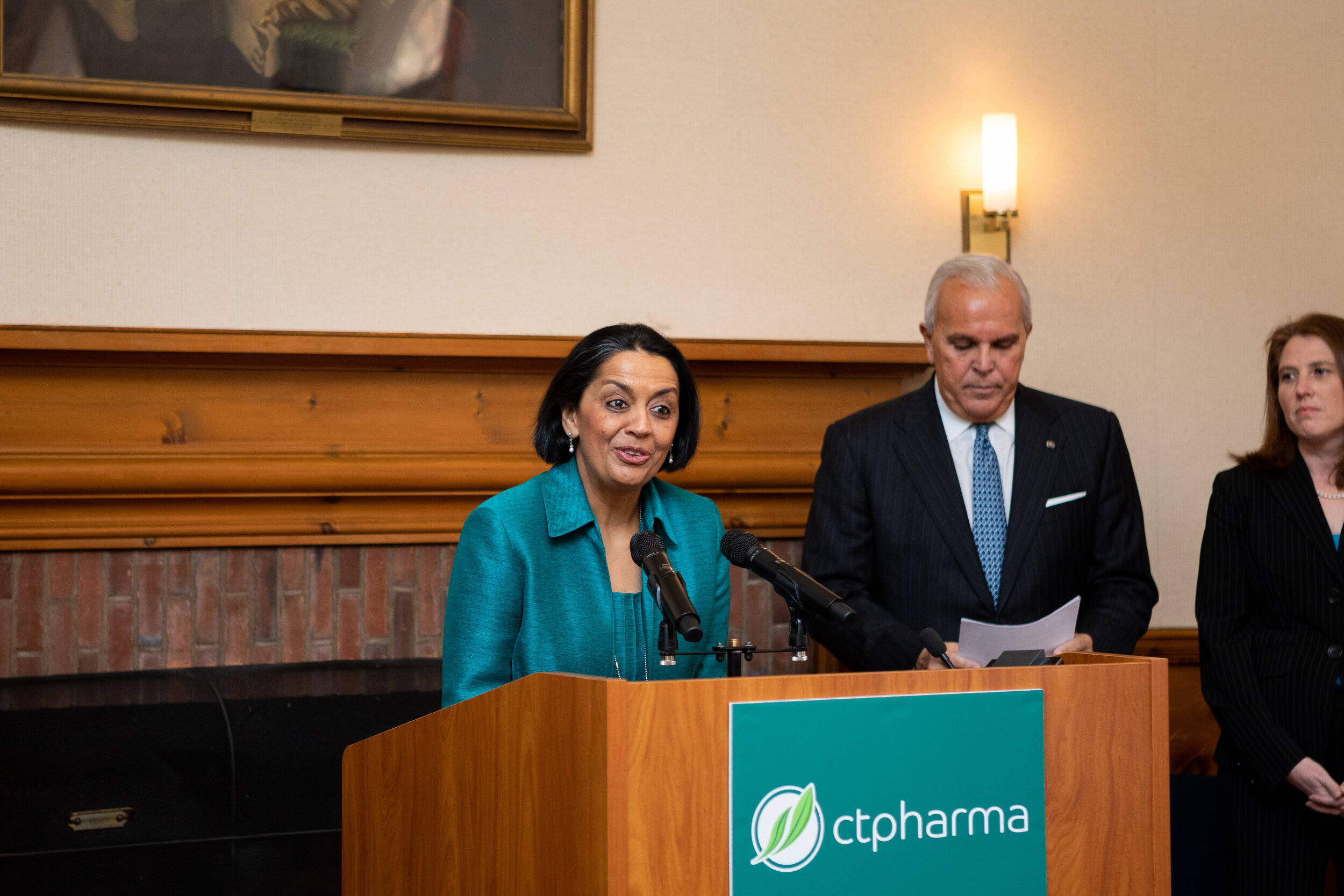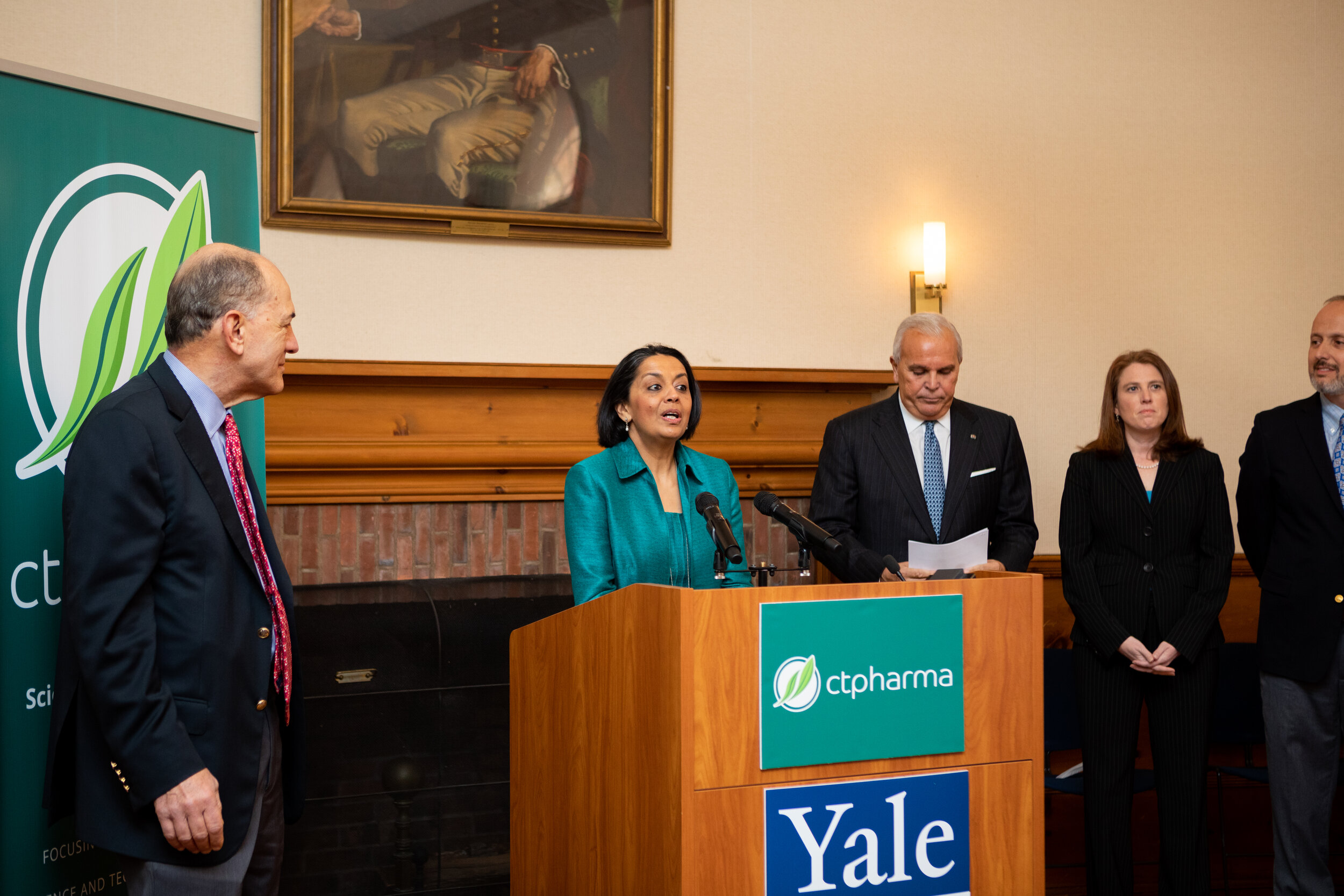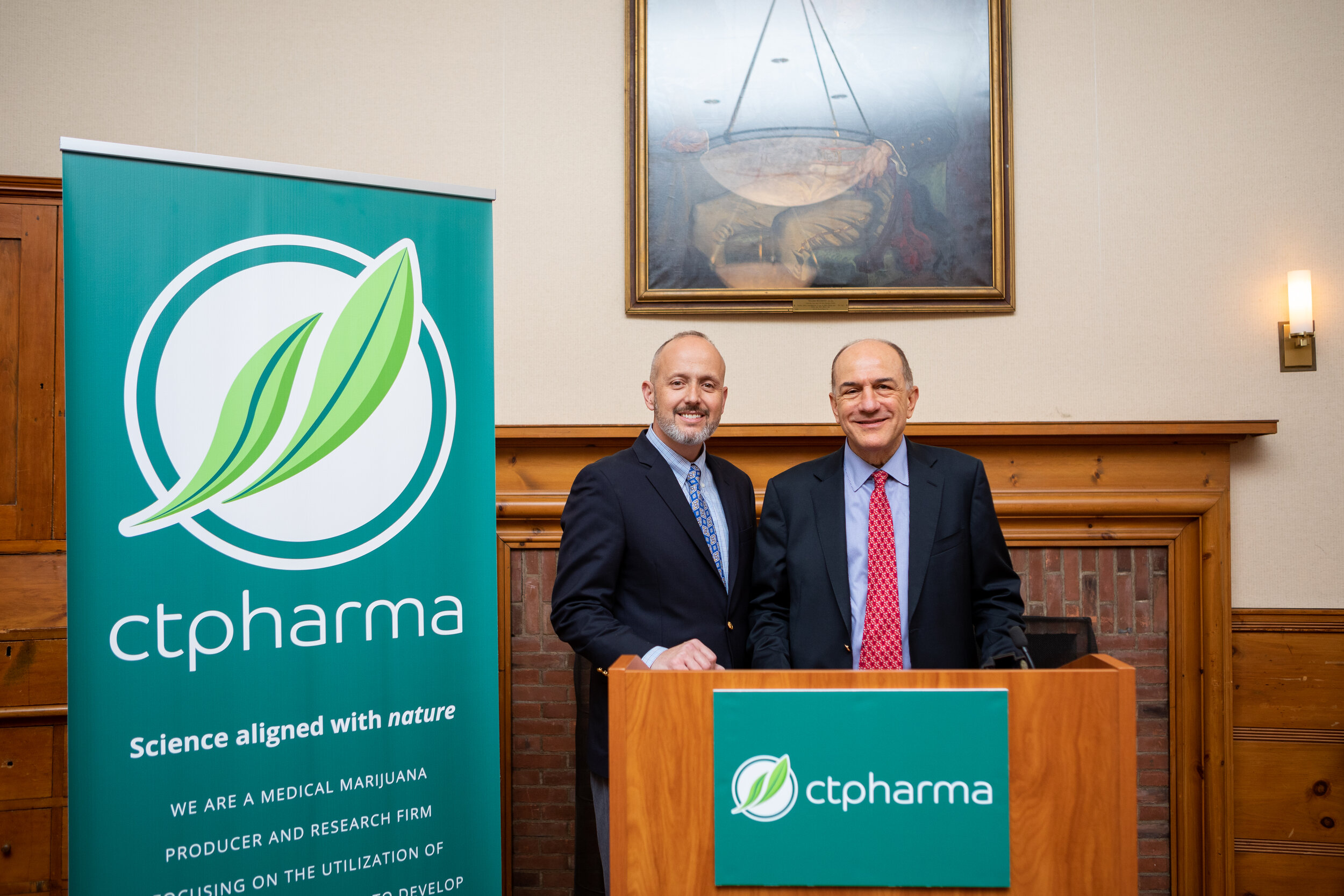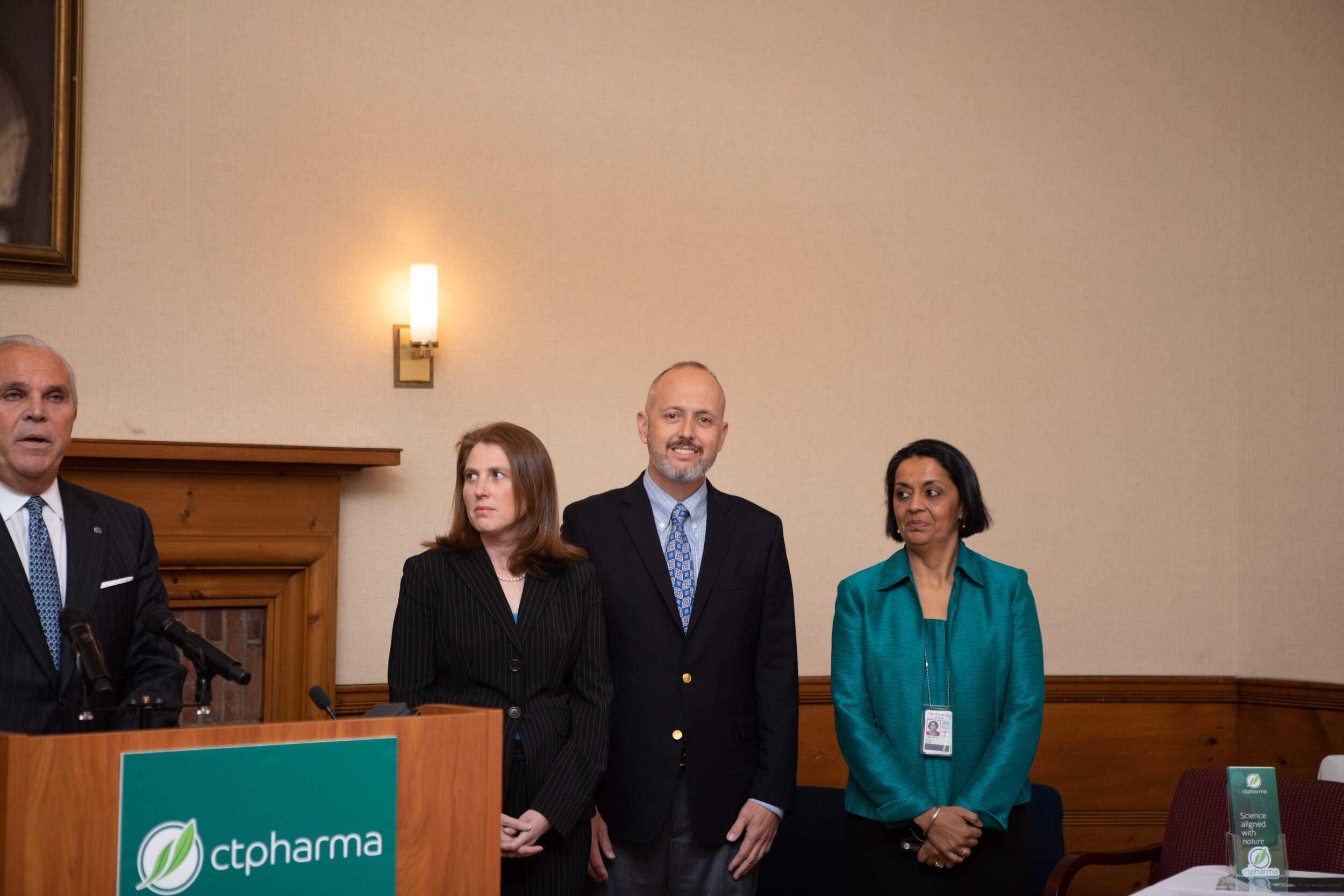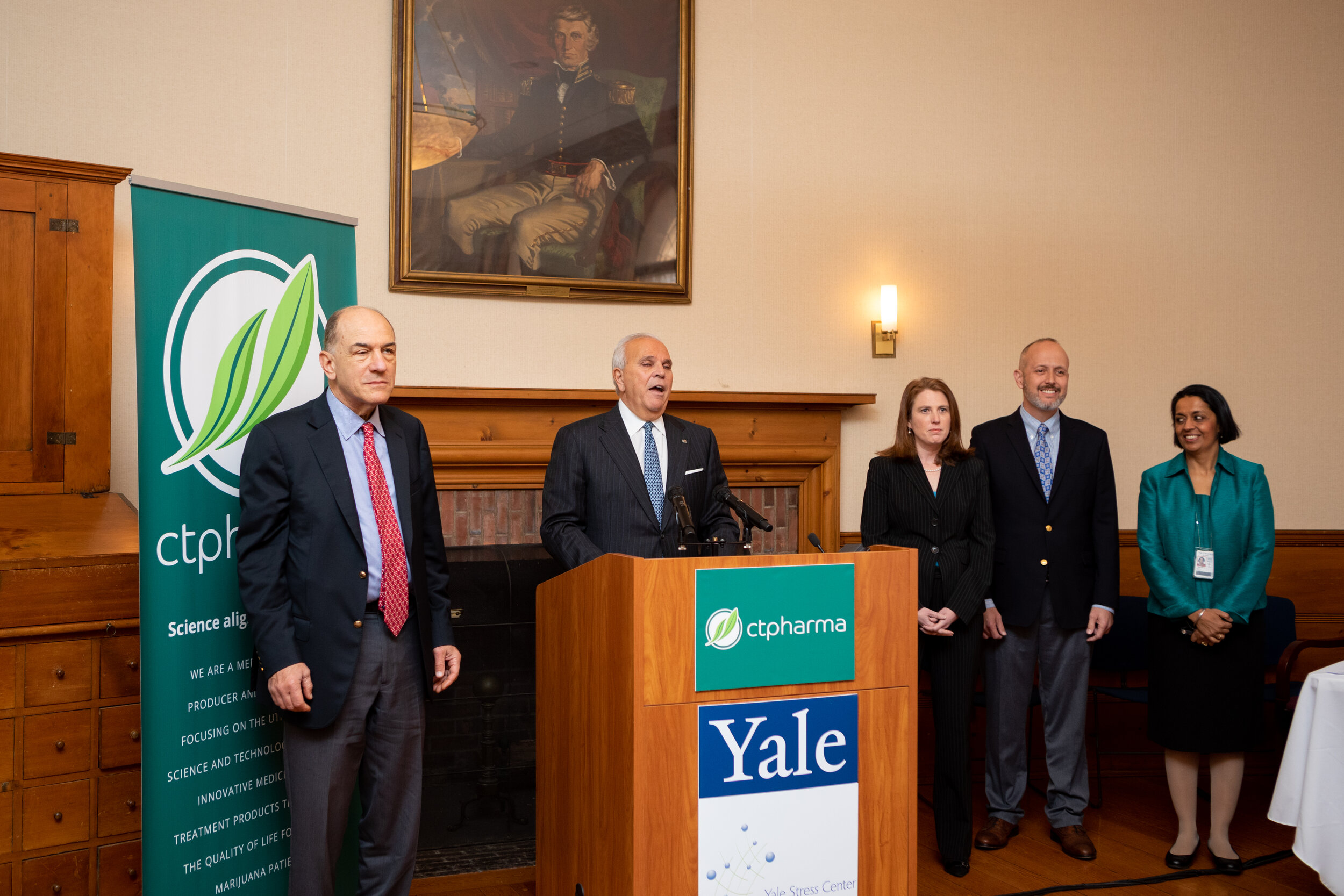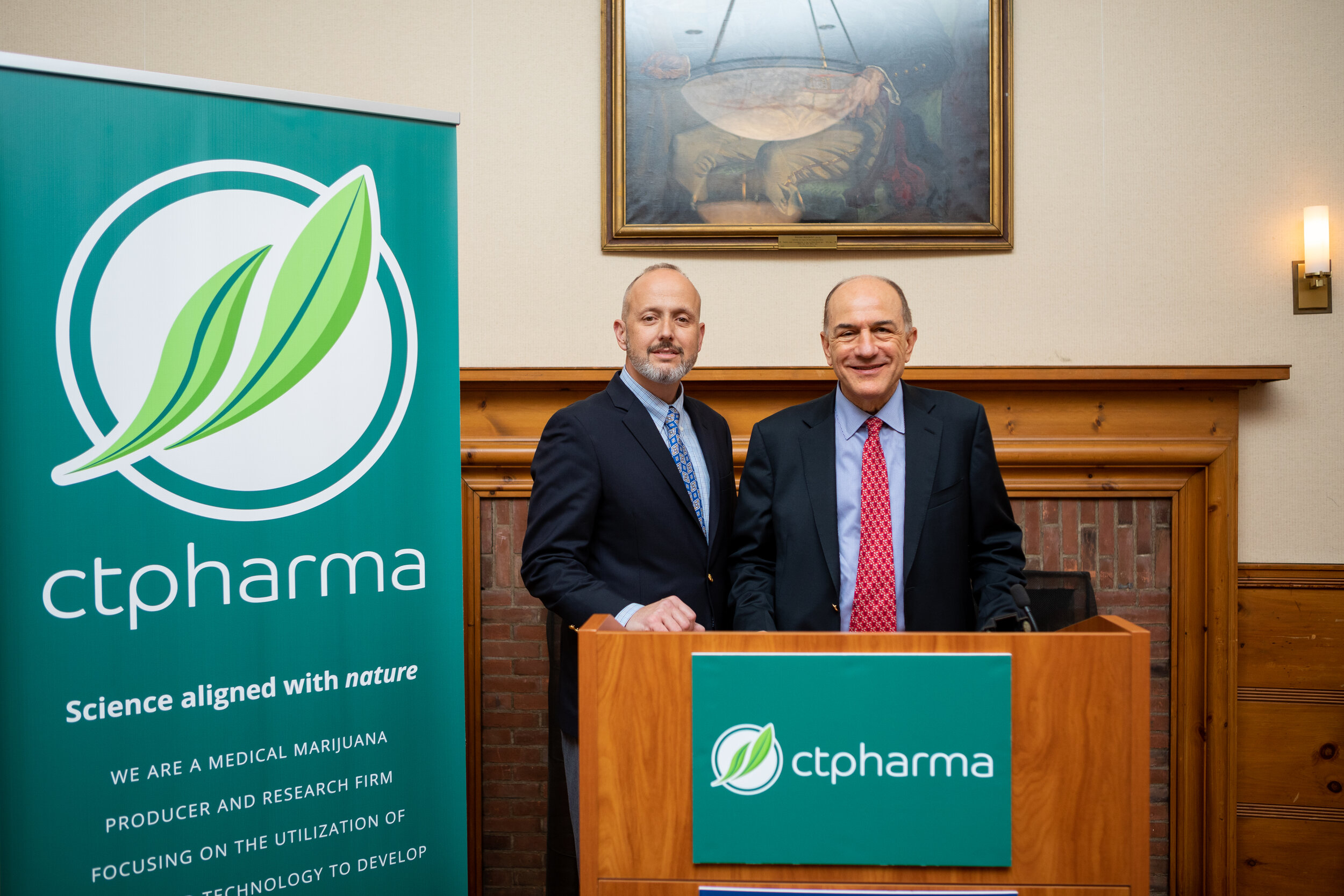CTPharma & Yale School of Medicine
During 2015, CTPharma began research efforts at the Yale School of Medicine. CTPharma now has 3 studies with Yale, one of which is a “groundbreaking” Food and Drug Administration (FDA)-approved clinical studies to study stress and pain relief in human patients.
YALE SCHOOL OF MEDICINE AND CTPHARMA ANNOUNCE GROUNDBREAKING CLINICAL STUDY WITH CANNABINOID MEDICINES.
Investigational New Drug (IND) trial will study a variety of medical conditions related to stress and pain.
Yale University School of Medicine and CTPharma will conduct a Phase One clinical study of the effectiveness of various medical marijuana formulations initially aimed at alleviating stress and pain in patients. This study is the first approved by the Department of Consumer Protection’s Medical Marijuana Research Program to study stress and mental health related issues.
The study’s initial phase is a safety and dosing study, in this case focused on pain and stress. The study will be the first of its type on human subjects, a double-blind, randomized, placebo-controlled clinical study using medical marijuana with an FDA-approved protocol.
The clinical study will address other conditions as appropriate based on the results of Phase One. Those conditions may include Post Traumatic Stress Disorder and opioid-replacement.
CACHEXIA STUDY – YALE SCHOOL OF MEDICINE
During 2015, CTPharma began research efforts at the Yale School of Medicine. This first study concerns cachexia, the wasting syndrome that often accompanies serious illness. If we can understand the mechanism through which the body begins to reject nutrition, perhaps we can reverse the condition and improve the nutrition of those fighting serious disease.
PTSD STUDY – YALE SCHOOL OF MEDICINE
Our second study at Yale School of Medicine involves establishing the blood levels of cannabinoids necessary to control PTSD and other nerve system disorders. The first phase of the study involves taking blood samples over several hours of patients under treatment to better understand safety and dosing specifics. This information will be used to develop dosing formulations for future PTSD study phases.

